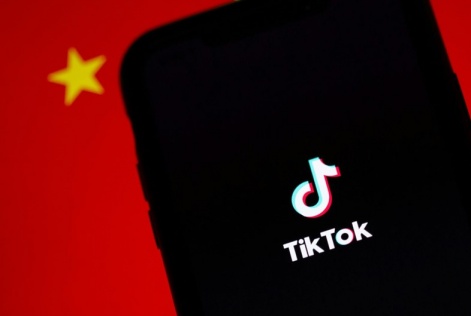TikTok owner ByteDance is on the precipice of new battles with both the US and the EU as each region looks to tackle respective concerns with the giant social media platform.
In the US, a new bill requires ByteDance to either sell TikTok to an American company (out from under its Chinese government connections) or face a national ban. The current owner has nine months to comply and sell the short-form video app or else the ban will come into place, although TikTok’s sale will also require the approval of Chinese officials in order to be completed.
Beijing has previously stated intentions to oppose a TikTok sale in the US, as has ByteDance, and so the BBC reports this process could take years.
In the EU, meanwhile, while TikTok's life isn't under threat, its Lite rewards programme is at risk of a ban as soom as tomorrow, April 25th.
US user security
The US House of Representatives voted in favour of the bill so it then proceeded to the Senate, which has now also overwhelmingly supported a TikTok ban or sale; 79 US senators voted for this while only 18 opposed it.
Next the bill is being sent to the American president Joe Biden to sign into law. In the US, the leading concern with leaving TikTok as is has been all the data on millions of Americans within the app, which could be accessed by the Chinese government; by handing this over to an American company instead, US user data should theoretically be better protected.
In a US election year, being seen to be strong on external international intervention and influence is an asset and it's likely that President Biden will be taking no risks in this regard.
Desptie this, ByteDance claims not to be a Chinese firm despite being founded by Chinese entrepreneur Zhang Yiming and headquartered in Beijing, arguing that 60% of its shares are owned by global investment firms.
On this basis, TikTok claims that it "is not an agent of China or any other country" and that this bill from the US will "trample the free speech rights of 170 million Americans, devastate seven million businesses, and shutter a platform that contributes $24 billion to the US economy, annually". The platform aims to rally support in opposition of the ban with a large lobbying campaign.
There are interesting parallels to be drawn between the bill and how China already operates - requiring that overseas games developers comply with local legislation and partner with Chinese publishers to release their games in the region. ByteDance needing to hand TikTok’s operations over to a US company for its US operations wouldn’t be entirely dissimilar, therefore.

Should no deal be made, and provided the federal law goes through, the Google Play Store and Apple’s App Store must stop offering TikTok as a download option early next year - again, not dissimilar from mobile games only being eligible for China’s stores if granted a licence approval by Chinese officials.
"For years we've allowed the Chinese Communist Party to control one of the most popular apps in America. That was dangerously short-sighted," said top Republican on the Intelligence Committee Senator Marco Rubio. "A new law is going to require its Chinese owner to sell the app. This is a good move for America."
EU user addiction
Meanwhile, across the sea and over in Europe, Commissioner Thierry Breton of the European Commission has declared TikTok "toxic and addictive", especially for children. Its new rewards programme only fuels this addiction, the Commission suggests, because it actively pays users for being on the app and developing such habits, risking "serious damage for the mental health of users".
TikTok Lite’s Task and Rewards programme was introduced only a week ago and offers what the BBC equates to "a few pence per day for watching videos", and though it’s only available to users above the age of 18, the Commission suspects the age verification process to be lacking.
Platforms the size of TikTok are also legally required to produce a risk assessment prior to any large changes in their products, but this was not completed before to the rollout.
As to what measures TikTok and Bytedance will take to weather both storms remains to be seen.
Photo by Solen Feyissa on Unsplash




















